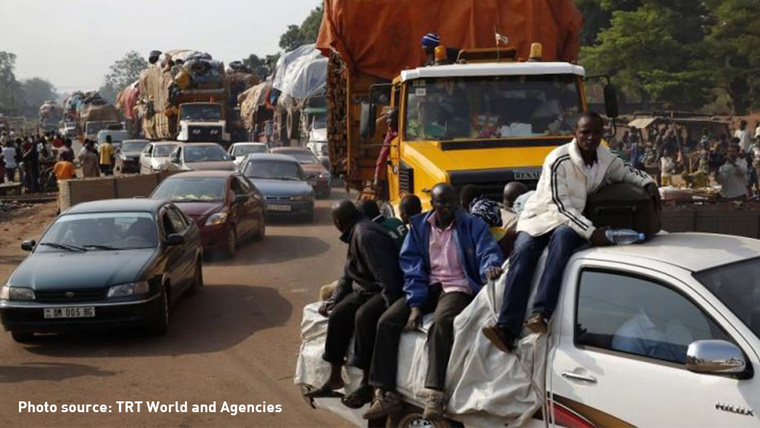According to the World Health Organization (WHO), Africa has the worst rate of road traffic accidents anywhere in the world. Earlier this month, a severe road crash was reported in Senegal which wounded 24 and killed another 20. BBC World covered the crash in a piece called Focus on Africa. To put things in perspective, we had a chat with one of our youth leaders based in Nigeria, Simon Patrick Obi, to talk about the situation in the region.
Road Safety in Africa
It has been recorded that Africa has a fatality rate of 26.6 deaths per 100,000 – three times the recorded rate in Europe. In our conversation, Simon shares that there are several interconnected reasons behind the region’s high road crash fatality rate. For one, Simon notes that poor education and road traffic regulation contribute greatly to the lack of road safety.
He also notes that there are factors that need to work together so that people are kept safe on African roads. He says;
“There are three factors that are responsible for road safety; the mechanical factor which has to do with the conditions of the vehicle, the environmental factor which has to do with the condition of the road, and the human factor which has to do with the behavior and attitude of the road users.”

Simon does acknowledge that there are obstacles faced by the African region in implementing road safety policies – obstacles which include funding for road infrastructure. “The funding available is not sufficient to respond to the ever-growing challenges of road safety due to the increased motorization in the continent.”
What can be done?
Despite the current road safety situation in the region, Simon sees that there are steps that can be taken to address the current traffic issues.
“In terms of solutions that government should adopt, I would say that government should imbibe community actions in developing and implementing interventions. For instance, road crashes are the single biggest killer of young people – this means that interventions in policy which do not involve young people will likely lead to little or no results.”
He emphasizes the need to have inclusive strategies and policies in road safety to address the needs of all road users in the region.

Sharing some best practices, Simon talks about Ethiopia and how it adopted a non-motorized transport strategy that will improve sustainable mobility and reduce road crashes affecting vulnerable road users such as young people.
He shared how Nigeria is also doing its part to end road traffic deaths through the creation of lead agencies in charge of road safety through the Management of Road Safety Affairs.”
Simon ends by emphasizing that there is still more work to be done in efforts for more inclusive road safety strategies. Young people need to be involved.

